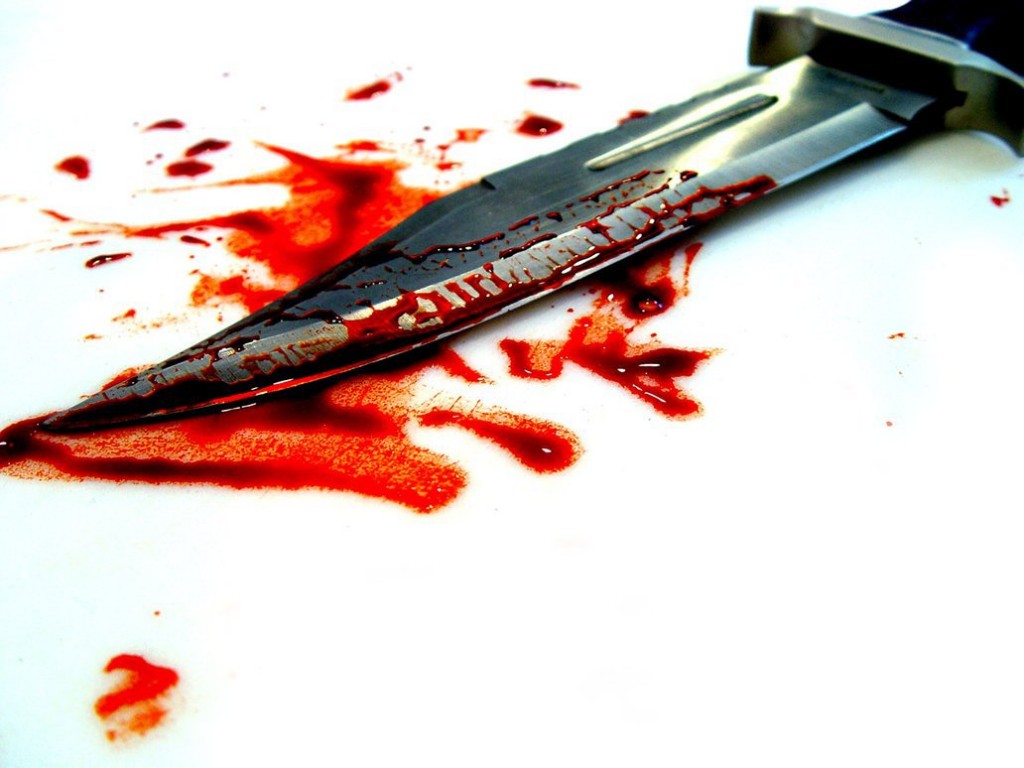Keeping up with the authoritarians
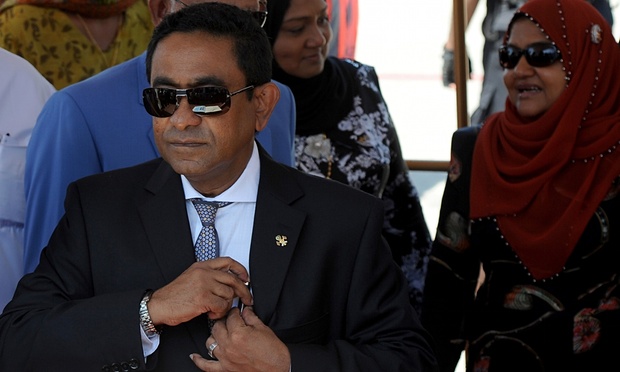
by Azra Naseem
The Maldives is no longer a democracy. For some reason, this is a fact which most observers, especially from the outside, are unwilling to accept. All statements and reports from the international community note ‘with concern’ the many actions of Yameen’s regime that fall well within the boundaries of authoritarianism, yet continue to insist the Maldivian democracy still exists – it’s just ‘at risk’.
According to experts, modern democratic regimes meet four minimum criteria: 1) the executive and Majlis are chosen through elections that are open, free, and fair; 2) virtually all adults possess the right to vote; 3) political rights and civil liberties, including freedom of the press, freedom of association, and freedom to criticise the government without reprisal, are broadly protected; and 4) elected authorities possess real authority to govern, in that they are not subject to tutelary control of military or clerical leaders.1
Which of these criteria are met by the current Maldivian regime?
In terms of No.1, the electoral process, the Supreme Court’s interventions in the presidential election of 2013 made a mockery of the electoral process. The many tricks and tactics used to draw out the election until it eventually ended in a win for Yameen are by now well documented2 and cannot be described by anyone who understands the principles and norms of democracy as ‘democratic.’
The Majlis elections in 2014, which was preceded by Supreme Court-engineered firing of President of the Elections Commission Fuwad Thowfeek—noted for his integrity—was characterised by vote buying and selling. As the EU Observers noted, while3 the election was ‘calm and orderly’, it was marred by ‘allegations of prevalent vote-buying, excessive campaign expenditure and abuse of state resources’4.
Another death blow to the electoral process has been the systematic imprisonment of all opposition leaders. Almost all opposition leaders are in jail: former president Mohamed Nasheed for 13 years, charged and convicted of terrorism; leader of Adhaalath Party Sheikh Imran Abdullah, charged with terrorism and in detention without trial now for over a 100 days; former Defence Minister Mohamed Nazim, convicted of weapons smuggling and jailed for 11 years. Those who haven’t been put behind bars, like 2013 presidential candidate Qasim Ibrahim, have either been coerced out of the political arena through threats to personal freedom and business interests while others—like the Chairman of MDP Ali Waheed, Deputy Leader of Jumhooree Party (JP) Ameen Ibrahim and impeached Vice President Mohamed Jameel Ahmed—have chosen to live in exile rather than spend what could be decades in prison. This state of affairs ensures that, when (or if) the next election comes around it would be, for all intents and purposes, non-competitive.
Number 2 on the list, the right for virtually all adults to vote still exists. But based on the experiences discussed above—judicial interventions, the now deeply embedded custom of vote buying and selling, patronage, blackmail and corruption—it is clear to see that the mere existence of that right does not ensure its contribution to the strengthening of democracy.
No. 3—the protection of civil and political rights—has suffered equally greatly. It is not simply leaders of the opposition the regime has clamped down on. From 8 February 2012 onwards, it became the norm to quell opposition protests with brutal violence. Pepper spray, violent beatings, and imprisonment were prevalent throughout the regime of caretaker president Waheed and during the protests in the lead-up to and during the 2013 presidential elections; and it has been standard practise after Yameen’s election. The arrest of over 200 protesters on 1 May 2015 and their subsequent unlawful detentions, mistreatment and intimidation—combined with the continued imprisonment of Nasheed and coercion of MDP—have effectively put a stop to all opposition rallies.
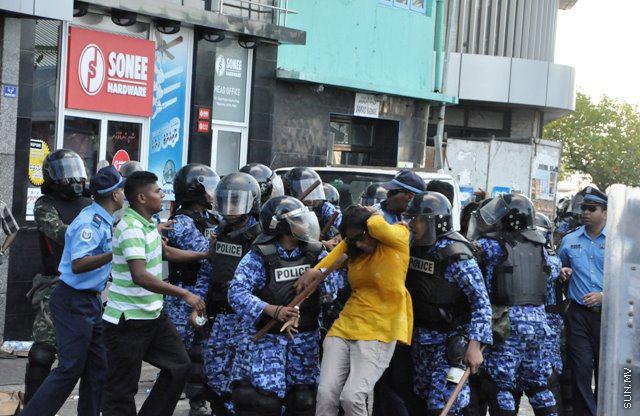
It is not just activists and mass protesters who have been silenced. There are virtually no independent institutions or civil society organisations left with the capacity or courage to criticise the government. The independence of the Elections Commission and the Human Rights Commission was taken away through Supreme Court instigated suo motu cases, while all other institutions, such as the Police Integrity Commission (PIC) as just one example, have been rendered toothless by appointing regime loyalists as members. The recently published report by the International Commission of Jurists (ICJ) chronicles the many steps taken against cvil society organisations since 2013, which all contribute towards elimination of civil and political rights.
And, when it comes to No.4, the possession of ‘real authority’ by elected officials to govern—this now applies only to Yameen and members of his Progressive Party of Maldives (PPM). The entire local governance system has been dismantled, and elected council members rendered powerless. In the Majlis, PPM and its allies enjoy the majority power needed to pass whatever Bills they propose, and where an absolute majority is needed—as seen in the machinations that saw MDP voting with PPM for two controversial constitutional amendments—it resorts to blackmail, coercion, patronage and the usual web of corruption and deceit to engineer the result it desires. Elected MPs have also lost their power through amendments made to Majlis rules such as the recent abolishing of the requirement for debate and discussion before passing bills, and the new regulation which says only PPM members can propose any legislation or amendments related to state finances.
Clearly, the Maldives is failing to meet the minimum criteria required of a modern democracy in all sectors. Experts admit that violations of these criteria occur in even the most established democracies. However, in such cases, the violations are not systematic enough to ‘fundamentally alter the playing field between government and opposition.’ In the Maldives, the playing field is not just failing to be level, it has been almost totally annihilated. The Maldivian Democratic Party is at its weakest since inception, its power to mobilise supporters and lead opposition activities held hostage to a) government’s unlawful detention and mistreatment of its charismatic leader, Nasheed, and b) to the threat to freedom and security of all its supporters.
So what kind of a regime is it that currently exists in the Maldives?
As the ICJ report noted, the Maldives’ transition to democracy was flawed. While Nasheed managed to instigate several democratic reforms, many key elements of the state apparatus remained within the control of the former Gayoom regime. For most of the transition period under Nasheed, the Majlis remained under opposition control, not acting as a responsible branch of the opposition but existing as a bulwark against much needed democratic reforms. The judiciary, too, remained in the grips of the same forces, its key members acting against the new democratic constitution rather than with it. As diligently chronicled by former member of the Judicial Services Commission, Aishath Velezinee, MDP was at times unable—and at other times unwilling—to instigate the actions necessary for change in the right direction.
The Maldivian democracy in transition under Nasheed can therefore be described as being, a ‘weak’ or ‘flawed’ or even a ‘diminished’ democracy; nevertheless it was one that met the minimum requirements of one. A difficult transition experience is neither unexpected nor unusual, as seen by the many African and Eastern European countries that adopted democracy in the post-Cold War era. And, as was seen from these countries, authoritarian reversal is not an unusual ending to such a transition.
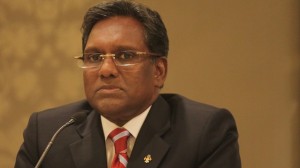 Once the controversial end to Nasheed’s government was accepted by CONI as ‘legal and constitutional’ with ‘no coup, no duress, no mutiny’, possibilities opened up for the ‘flawed democracy’ to change into a hybrid regime veering away from democracy towards competitive authoritarianism. When caretaker president Mohamed Waheed Hassan Manik took the reigns of the country, this is the direction in which he—with the Gayoom loyalists he signed with—firmly steered the country.
Once the controversial end to Nasheed’s government was accepted by CONI as ‘legal and constitutional’ with ‘no coup, no duress, no mutiny’, possibilities opened up for the ‘flawed democracy’ to change into a hybrid regime veering away from democracy towards competitive authoritarianism. When caretaker president Mohamed Waheed Hassan Manik took the reigns of the country, this is the direction in which he—with the Gayoom loyalists he signed with—firmly steered the country.
In a competitive authoritarian regime, violations of the four criteria discussed above are frequent:
Although elections are regularly held and generally free of massive fraud, incumbents routinely abuse state resources, deny the opposition adequate media coverage, harass opposition candidates and their supporters, and in some cases manipulate electoral results. Journalists, opposition politicians, and other government critics maybe spied on, threatened, harassed, or arrested. Members of the opposition may be jailed, exiled, or—less frequently—even assaulted or murdered. Regimes characterised by such abuses cannot be called democratic. (Levitsky and Way 2002)
As discussed previously, the presidential election of 2013, was less than democratic. Waheed’s rule was marked by major clamp downs on opposition, the brutal murder of MP Afrasheem Ali, and several attacks on journalists and media organisations. All such activities multiplied after Yameen’s election. Three young men, including a journalist, have been missing for over a year. The government has failed to investigate and, in the case of the disappeared journalist, has actively obstructed efforts to find him. While media freedom remains, Maldives has slipped from 51st place in the World Press Freedom Index in 2012 to 112th place in 2015. Added to this are the threats and actions against the opposition previously discussed, and the government’s control of the judiciary and the legislature — all hallmarks of competitive authoritarianism.
Clearly, the Maldivian democracy has long since passed the ‘at risk’ stage. It no longer exists. The question that should be asked is, under what sort of authoritarianism is the country in? Is it competitive, or full-scale authoritarianism?
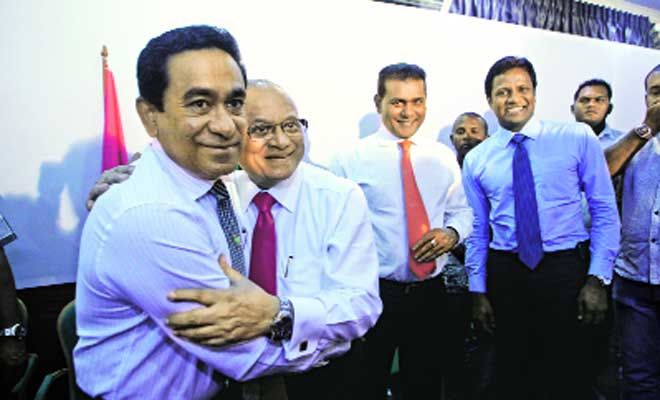
In a competitive authoritarian regime, although not a democracy, there are still arenas of contestation through which opposition forces ‘may periodically challenge, weaken, and occasionally even defeat autocratic rulers’. These are: a) the electoral arena; b) the legislature; c) the judiciary; and c) the media.
In competitive authoritarian regimes the electoral process can be marked by large-scale abuses of state power. The media is often biased, and there is widespread abuse and harassment of opposition activists and candidates. But, major opposition parties and candidates still compete, the elections are generally free of massive fraud, and international observers are allowed to monitor the process. This (apart from the extra-legal interventions of the Supreme Court) largely applies to what happened in the 2013 presidential election in the Maldives.
Things have, however, progressed far beyond that stage now. What is seen happening in the electoral process at present—such as the routine imprisonment of opposition figures—are hallmarks of full-scale authoritarianism where elections are either devoid of any serious competition, or are not held at all. At the level of local government, the electoral process has all but disappeared. When it came to the latest round of local council elections, the newly elected Elections Commission—populated by regime loyalists—decided the process wasn’t worth the required MVR100,000 or so. Furthermore, if an increasingly loud media murmur is to be believed, plans are now in the offing to extend the presidential term limits from five years to eight years through yet another constitutional amendment through the Majlis.
Looking at the legislative arena, things are not any rosier. In a competitive authoritarian regime, the legislature—although controlled by a ruling party majority—remains a place where the opposition can, even if occasionally, put up a good fight; and can still be a public platform from which to criticise the regime. This was largely the case with the Maldivian Majlis during caretaker Waheed’s regime. Recent developments in the Majlis in relation to the constitutional amendments, however, proved that it no longer serves as a people’s parliament, representing differing opinions and voices. It, too, has become a hallmark of full-scale authoritarianism where ‘conflict between the legislature and the executive branch is virtually unthinkable.’
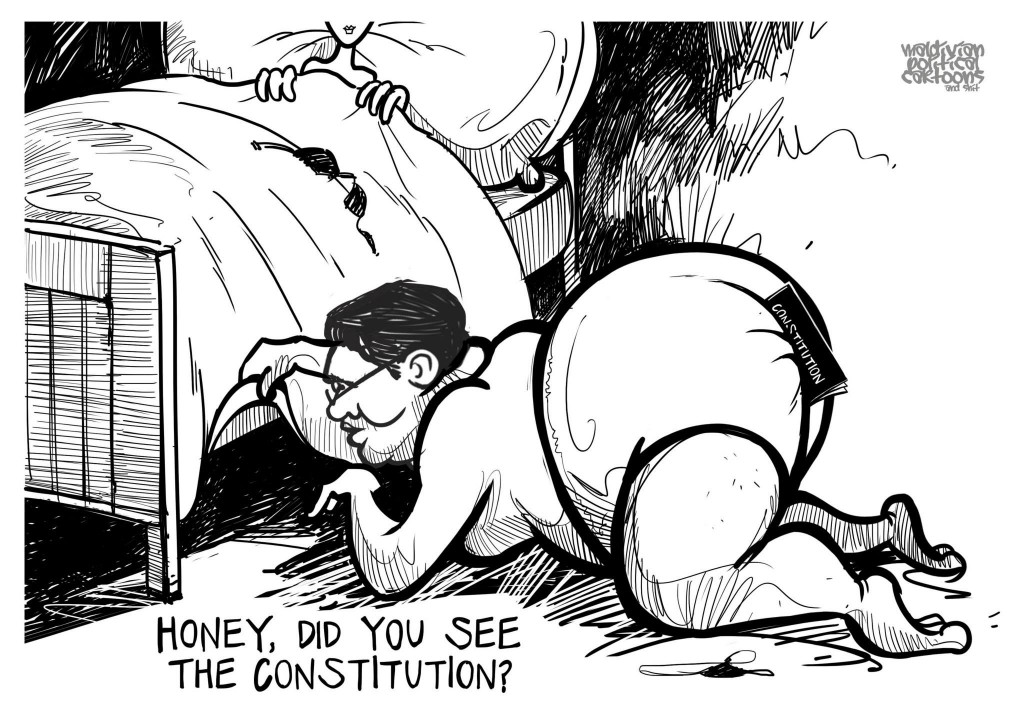 That the third arena—the judiciary—is under the complete control of the government is not an argument that anyone seriously contests, except the executive itself. Dozens of reports have been published by a whole range of international organisations from the UN to the ICJ censuring its lack of independence and corruption, and criticism has flowed from individual states, regional bodies and supranational entities. During Waheed’s competitive authoritarian regime, the widespread corruption, patronage and blackmail inherited from the Gayoom era remained in the judiciary. But there was room—although very little—for individual judges to express dissenting opinions. Several decisions by the executive since Yameen’s assumption of office, brought into effect via the compliant Majlis—such as the restructuring of the Supreme Court bench—have, however, destroyed any wriggle room for independent thought or action in the judiciary.
That the third arena—the judiciary—is under the complete control of the government is not an argument that anyone seriously contests, except the executive itself. Dozens of reports have been published by a whole range of international organisations from the UN to the ICJ censuring its lack of independence and corruption, and criticism has flowed from individual states, regional bodies and supranational entities. During Waheed’s competitive authoritarian regime, the widespread corruption, patronage and blackmail inherited from the Gayoom era remained in the judiciary. But there was room—although very little—for individual judges to express dissenting opinions. Several decisions by the executive since Yameen’s assumption of office, brought into effect via the compliant Majlis—such as the restructuring of the Supreme Court bench—have, however, destroyed any wriggle room for independent thought or action in the judiciary.
The media, is perhaps the only one of the four arenas which full-scale authoritarian regimes usually control that is not yet fully within the grasp of the Yameen regime. This is due not for the lack of trying, but to the impossibility of imposing such control over the kind of globally inter-connected media that exists today. Spying—both traditional and cyber—on dissenting voices by the police is common place, as is harassment and intimidation. And, as discussed before, the working environment for many journalists is far from safe. On top of this, the regime is now set to pass two new Bills—one on Freedom of Expression and one on Counterterrorism—which are set to curtail dissent and opposition to degrees not seen since the transition to democracy in 2008.
I received more than two death threats just tonight. Says a lot about press freedom in #Maldives pic.twitter.com/1Na0AMbsN9
— Mohamed Wisam (@sampathmasiw) September 2, 2015
In addition to all this is the Yameen regime’s total dismissal of international democratic opinion, treaties and laws, and a deliberate foreign policy shift away from the democratic international community in favour of China, and authoritarian regimes in the Middle East. Except for the fact that the Maldives is not (yet) a threat to international security, the regime could easily be described as a ‘rogue state’.
And yet—despite all the evidence which shows the Maldives fitting neatly into the existing frameworks of what defines at best a competitive authoritarian regime and at worst a full-scale authoritarian regime—leaders of established democracies, and international stakeholders in the global democratisation efforts, continue describing the Maldives as ‘a democracy at risk’. This is clearly no longer the case.
Why the reluctance to let go of the ‘democracy’ label? Does it arise from a fear of acknowledging defeat and admitting that despite the international community’s interest and (sometimes admirable) efforts to help democratise the Maldives, it has failed to take root and succeed? Or is it simply because international actors are not keeping up with the authoritarians in the Maldives?
This must change. Any efforts to restore democracy to Maldives must start with the acknowledgement that however successful the transition appeared in the beginning, it has been deliberately failed. A fresh start that learns from the past, and knows what we are dealing with at present, is necessary.
1 Steven Levitsky and Lucan Way, ‘The rise of competitive authoritarianism’, Journal of Democracy 13 (2) (2002), 51-65:53
2 EU Election Observation Mission, ‘Republic of Maldives parliamentary elections 22 March 2014: final report’, available at http://www.eueom.eu/files/pressreleases/english/eu-eom-maldives2014-final-report_en.pdf (27 August 2015).
See also: International Commission of Jurists and South Asians for Human Rights, ‘Justice adrift: rule of law and political crisis in the Maldives’, August 2015, available at http://icj.wpengine.netdna-cdn.com/wp-content/uploads/2015/08/Maldives-Justice-Adrift-Rule-of-Law-Publications-fact-finding-report-2015-ENG.pdf (28 August 2015).
3 Commission of National Inquiry (CONI), August 2012
4 . EU Election Observation Mission, ‘Republic of Maldives parliamentary elections 22 March 2014: final report’, available at http://www.eueom.eu/files/pressreleases/english/eu-eom-maldives2014-final-report_en.pdf (27 August 2015).
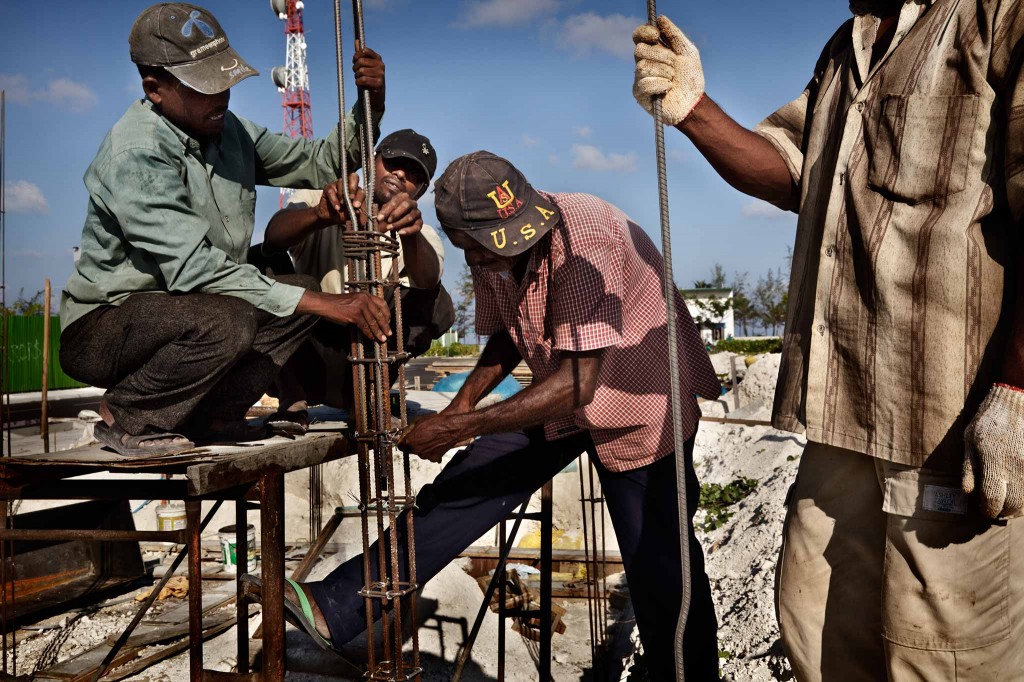
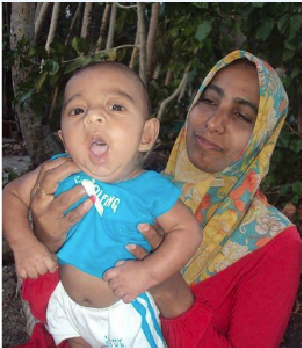 An Indian woman was arrested night before last on allegations of infanticide and attempted suicide, raising concerns that she could be subject to the same judicial torture as
An Indian woman was arrested night before last on allegations of infanticide and attempted suicide, raising concerns that she could be subject to the same judicial torture as 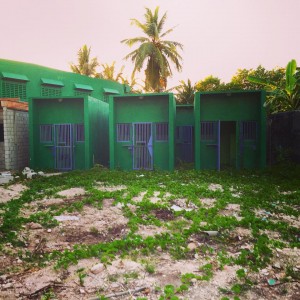 There are also reports of other foreign women held at Dhoonidhoo Island Detention Centre on allegations of prostitution, abortion and drug trafficking. Some of these women are victims of sex trafficking and trafficking in persons. But without a systematic mechanism to identify victims, or the mentality to view such individuals as victims, Maldives’ authorities exacerbate psychological and physical trauma suffered by human trafficking victims.
There are also reports of other foreign women held at Dhoonidhoo Island Detention Centre on allegations of prostitution, abortion and drug trafficking. Some of these women are victims of sex trafficking and trafficking in persons. But without a systematic mechanism to identify victims, or the mentality to view such individuals as victims, Maldives’ authorities exacerbate psychological and physical trauma suffered by human trafficking victims.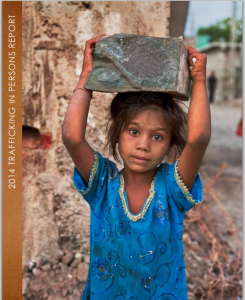 The US State Department has consistently raised the issue of increasing debt bondage among South Asian migrant workers under its annual Trafficking in Persons report. According to its most recent report, migrant workers pay agents around US$2,000-4,000 to work in the Maldives. There have been reports that some of the 200 registered agents bring migrant workers to the Maldives under terms of employment that amount to criminal acts of deception or fraud, entangling employees in a vicious cycle of debt. The report also recommends that Maldives accede to the UN Protocol to Prevent, Suppress and Punish Trafficking in Persons.
The US State Department has consistently raised the issue of increasing debt bondage among South Asian migrant workers under its annual Trafficking in Persons report. According to its most recent report, migrant workers pay agents around US$2,000-4,000 to work in the Maldives. There have been reports that some of the 200 registered agents bring migrant workers to the Maldives under terms of employment that amount to criminal acts of deception or fraud, entangling employees in a vicious cycle of debt. The report also recommends that Maldives accede to the UN Protocol to Prevent, Suppress and Punish Trafficking in Persons.